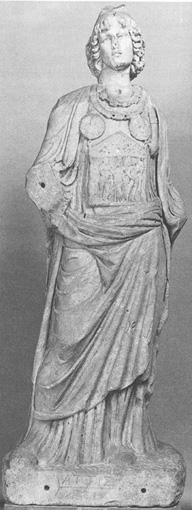Femminiello
Femminiello or Femmeniello is a term used to describe a traditional gender role specific to the culture of Naples, Italy. The term, which is difficult to translate exactly, refers to a person assigned male at birth with a markedly feminine gender expression. Femminielli are considered a third gender in the Neapolitan context and are distinguished from gay men and transgender women. Their role and identity are deeply integrated into Neapolitan society and culture, embodying a unique intersection of gender, sexuality, and local identity.
Definition and Characteristics[edit | edit source]
The word "femminiello" comes from "femmina," meaning woman, and the diminutive suffix "-iello," indicating something smaller or lesser. This term, however, is not derogatory but rather carries an affectionate tone within the Neapolitan community. Femminielli are recognized for their own specific gender expression that does not necessarily fit within the binary notions of male and female. They often dress in women's clothing and may use feminine pronouns, but do not necessarily identify as women nor express the desire to transition to female. Their identity is more fluid and is seen as a distinct third gender role within the Neapolitan cultural framework.
Cultural Significance[edit | edit source]
Femminielli hold a special place in Neapolitan culture, enjoying a degree of social acceptance that is remarkable in the context of traditional Southern Italian society. They often play important roles in local ceremonies, such as weddings and the festival of Madonna delle Galline in Pagani, where they are believed to bring luck. The presence of femminielli in Neapolitan society is an example of how gender diversity has been recognized and integrated into specific cultural contexts.
Historical Context[edit | edit source]
The history of femminielli goes back centuries, with their presence documented in the literature, art, and folklore of the region. They have been both celebrated and marginalized at different times throughout history, but have maintained a visible and significant presence in Neapolitan culture. The acceptance and role of femminielli in Naples can be seen as a reflection of the city's complex social and cultural fabric, where traditional and non-traditional gender roles have coexisted for a long time.
Contemporary Perspectives[edit | edit source]
In recent years, the visibility of femminielli in Naples and broader discussions around gender and sexuality have evolved. While they continue to be a part of Neapolitan culture, the global conversation on LGBTQ+ rights and identities has influenced how femminielli and similar identities are perceived and understood. There is an ongoing dialogue within Italy and beyond about the place of traditional gender roles in modern society and the recognition of gender diversity.
See Also[edit | edit source]
Search WikiMD
Ad.Tired of being Overweight? Try W8MD's physician weight loss program.
Semaglutide (Ozempic / Wegovy and Tirzepatide (Mounjaro / Zepbound) available.
Advertise on WikiMD
|
WikiMD's Wellness Encyclopedia |
| Let Food Be Thy Medicine Medicine Thy Food - Hippocrates |
Translate this page: - East Asian
中文,
日本,
한국어,
South Asian
हिन्दी,
தமிழ்,
తెలుగు,
Urdu,
ಕನ್ನಡ,
Southeast Asian
Indonesian,
Vietnamese,
Thai,
မြန်မာဘာသာ,
বাংলা
European
español,
Deutsch,
français,
Greek,
português do Brasil,
polski,
română,
русский,
Nederlands,
norsk,
svenska,
suomi,
Italian
Middle Eastern & African
عربى,
Turkish,
Persian,
Hebrew,
Afrikaans,
isiZulu,
Kiswahili,
Other
Bulgarian,
Hungarian,
Czech,
Swedish,
മലയാളം,
मराठी,
ਪੰਜਾਬੀ,
ગુજરાતી,
Portuguese,
Ukrainian
Medical Disclaimer: WikiMD is not a substitute for professional medical advice. The information on WikiMD is provided as an information resource only, may be incorrect, outdated or misleading, and is not to be used or relied on for any diagnostic or treatment purposes. Please consult your health care provider before making any healthcare decisions or for guidance about a specific medical condition. WikiMD expressly disclaims responsibility, and shall have no liability, for any damages, loss, injury, or liability whatsoever suffered as a result of your reliance on the information contained in this site. By visiting this site you agree to the foregoing terms and conditions, which may from time to time be changed or supplemented by WikiMD. If you do not agree to the foregoing terms and conditions, you should not enter or use this site. See full disclaimer.
Credits:Most images are courtesy of Wikimedia commons, and templates, categories Wikipedia, licensed under CC BY SA or similar.
Contributors: Prab R. Tumpati, MD

